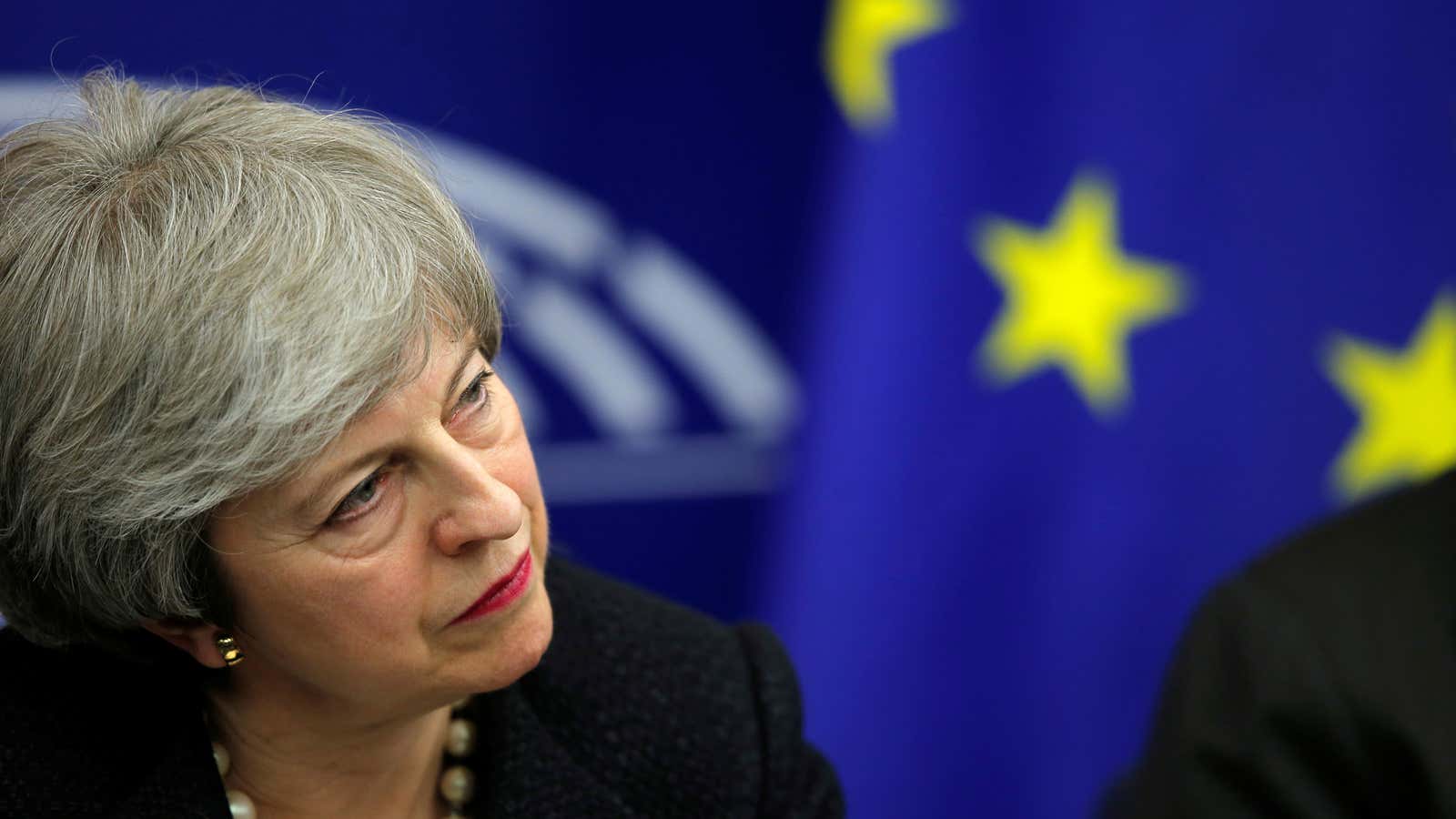Here we go again.
The UK parliament today (March 14) cast the final of three motions on Brexit this week, voting in favor of delaying the country’s scheduled departure from the EU on March 29 until at least June 30. Some 412 MPs voted for, and 202 against.
It had yesterday (March 13) voted against the UK leaving the EU on March 29 without a Brexit deal in place by a margin of 43 votes, and on Tuesday (March 12) rejected prime minister Theresa May’s Brexit proposal for a second time by a margin of 149 votes—less than the historic thumping MPs gave it in January.
Yesterday and today’s votes are “non-binding,” meaning they don’t carry legal force. But they are still a useful gauge of what parliament is prepared to support legislatively.
Together, these votes give May a mandate to formally seek an extension from the EU to Article 50, the part of the EU Lisbon Treaty that allows member states to leave the bloc, which was triggered after the 2016 Brexit referendum. But first, May will put her proposal to a parliamentary vote for a third time on March 20. If the deal passes, she will likely only ask for a short technical extension until June 30. If not, a longer one may be called for.
The EU’s 27 other member states would need to approve an extension. Some, like European Commission president Donald Tusk, prefer a long extension to allow the UK to build support for a specific course of action on Brexit. Opinion is more mixed among British politicians—with some wanting a shorter extension to avoid the UK participating in the EU’s parliamentary elections in late May.
If the EU declines to approve an extension, the UK will be on course to crash out of the EU unless a deal is reached, or parliament legislates to revoke Brexit before March 29 should one not be approved by then.
May’s longstanding Brexit strategy appears to be to run down the clock—and more recently to float the possibility of no departure (paywall) to win support for her deal from Brexiteers within her own Conservative party. That approach is unlikely to change the math enough in May’s favor. The EU has consistently stated that they are not prepared to make further concessions to the plan.
In addition to a Brexit delay, legislators also voted today on a non-binding motion over calling a second referendum that failed decisively. Members of the Labour party were called to abstain from the vote, with some citing a desire for a vote on a second referendum at a later stage.
With 15 days to go until the UK is due to depart the EU, the prospect of either a general election or a second referendum remains an open question. The Independent Group, made up of 11 former Labour and Conservative MPs, are strongly in favor of the latter, often referred to as the “People’s Vote.” Labour, having previously pushed for such a vote, today abandoned the suggestion.
“Clearly May’s deal has been overwhelmingly rejected and it is loathed by almost all parts of the political spectrum,” a spokesperson for Labour leader Jeremy Corbyn told The Independent. It “would not be right for that deal in its current form to be put to a referendum.”
